how to prepare for goats
If you have wanted to add livestock to your homestead, then this guide on how to prepare for goats is a great place to get started.
How to raise dairy goats in a way that is enjoyable from day one means being prepared before you begin. What to have, what to know, and what to expect will set you up for a more successful journey with fewer surprises.
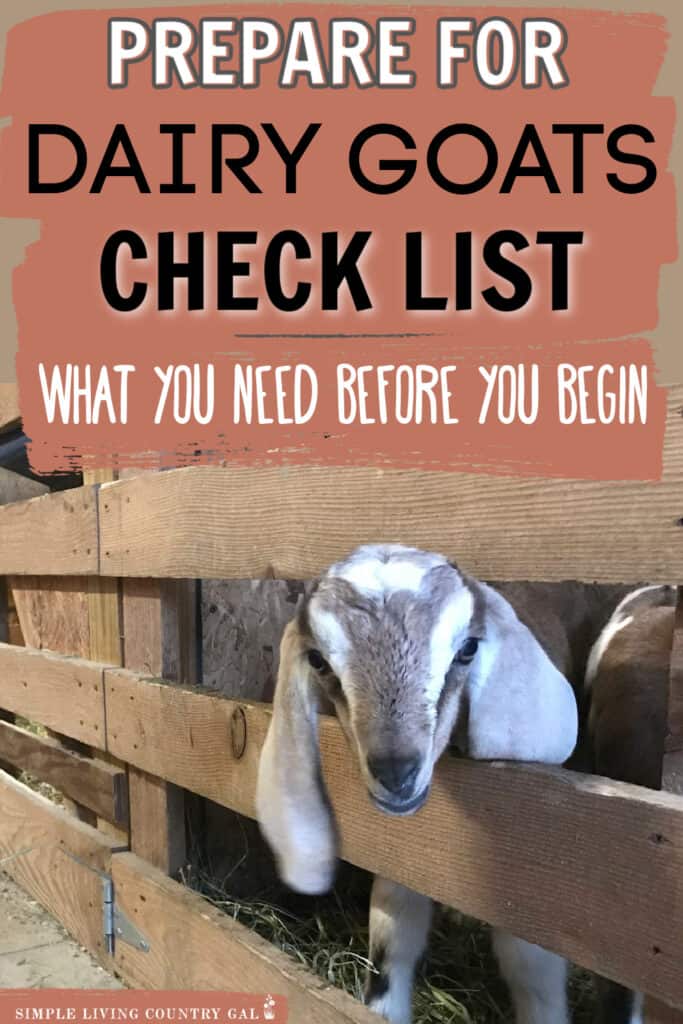
So you’ve decided to become a goat owner. Congratulations! Goats are not only cute and cuddly, but they also make great companions and provide endless entertainment.
However, caring for goats is a big responsibility and involves work and commitment. In this guide, I will cover everything you need to know as a brand-new goat owner, from housing and pasture to food and first aid care.
When I first started raising dairy goats, my experience was minimal. Most of what I learned was in the moment or after I had done things the wrong way. This is not how I suggest anyone learn when it comes to raising and caring for any animals.
And because of that, I like to share my experience as much as possible so others can start out more confidently.
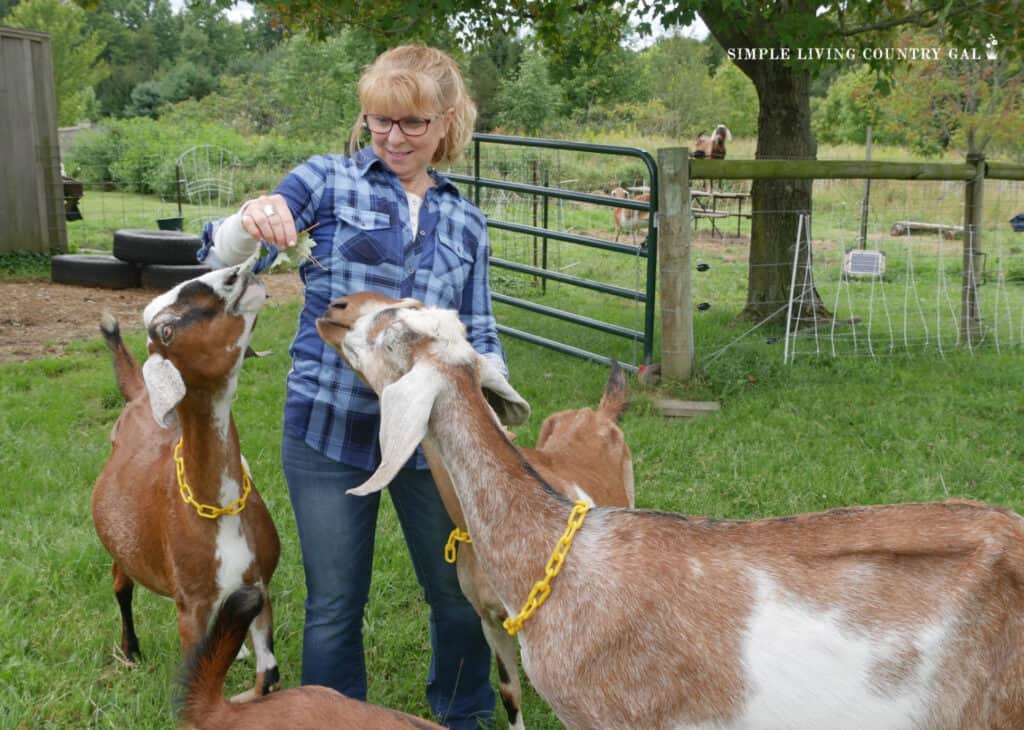
How to Prepare for Goats
As with any animal, there are a few things to know and have set in place before bringing them home.
Goat housing
First, you will need to prepare suitable housing for your new goats.
Goats require a dry and draft-free shelter to protect them from the elements. If you live in a warmer climate, a simple three-sided shelter with a slanted roof will suffice. If you live in an area with lots of rain or snow, you will want a shed or even a barn for your goats.
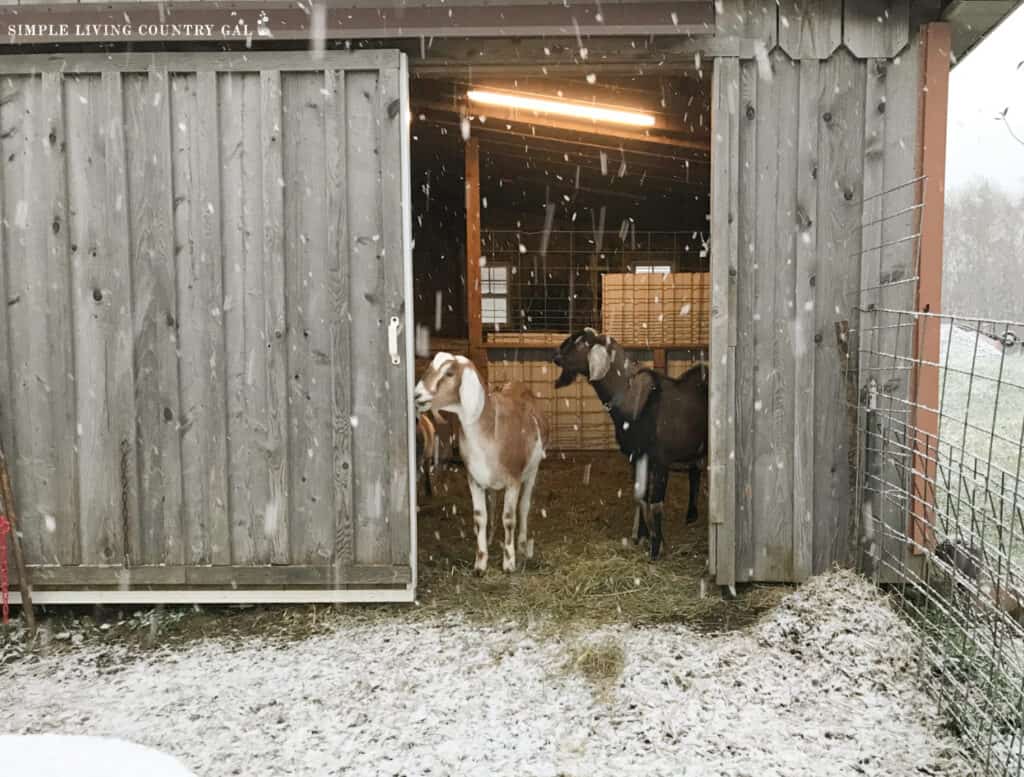
Whatever shelter you decide on, make sure it is tall enough to accommodate the height of your goats and that it has good ventilation for healthier breathing.
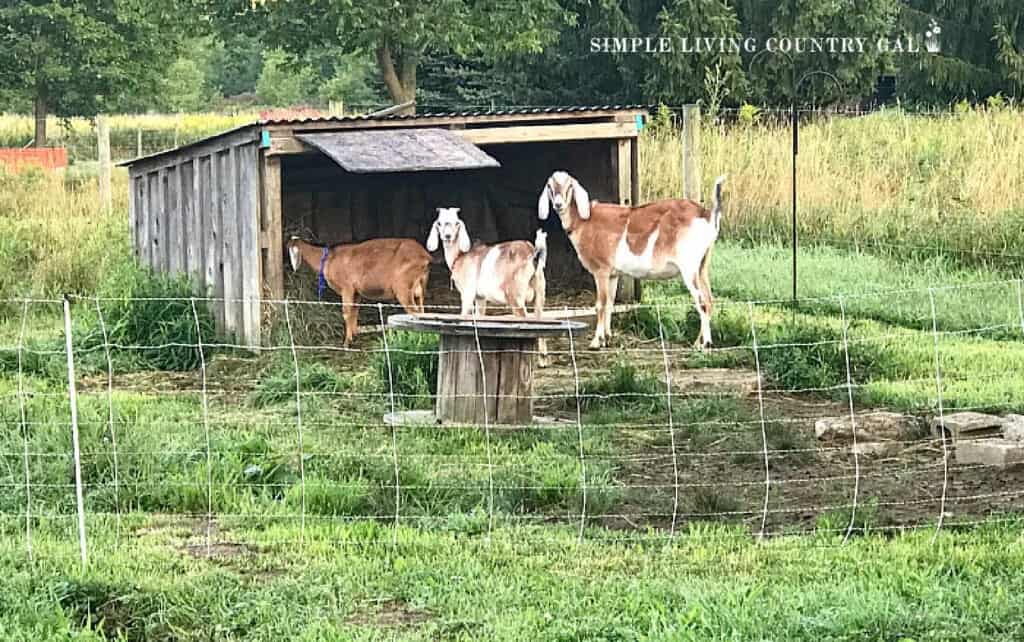
Goat Pasture
Goats do much better when they have an area where they can graze during the day. This is called a pasture, and it should be fenced in with plenty of space to graze and roam.
A good rule of thumb is to provide at least 200 square feet of pasture per goat. Be sure to fence off your pasture to keep your goats from wandering off. Depending on where you live and the size of the pasture will determine what fencing you will want to use.
Goat Fencing Resources:
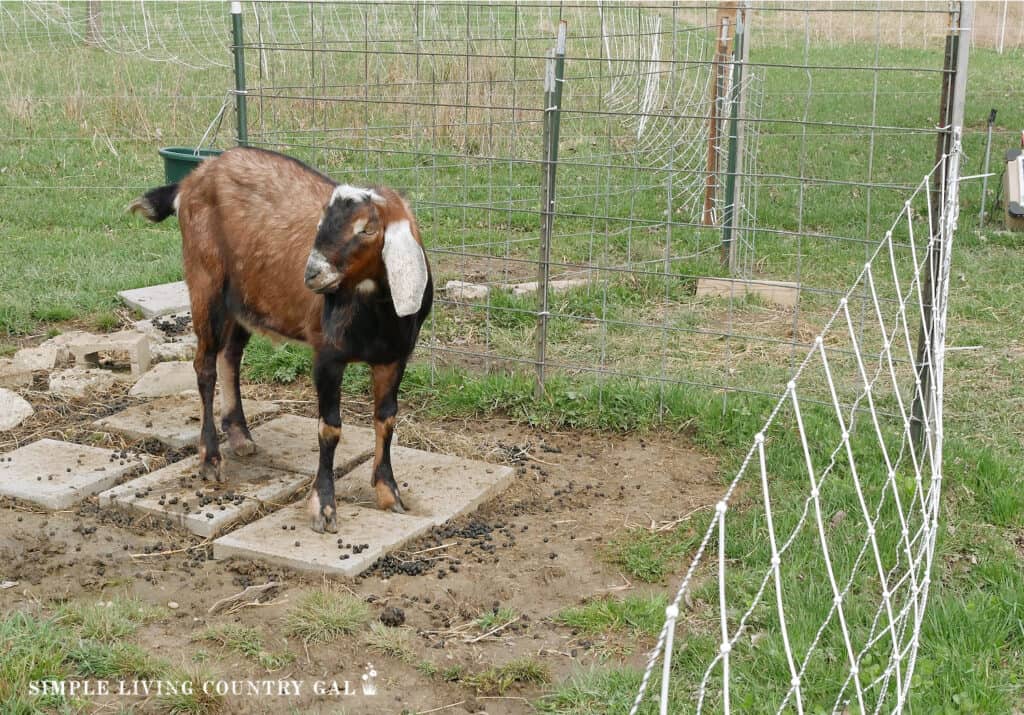
Food and Hay
Goats are herbivores and require a diet that consists primarily of hay and fresh grass. Ensure to provide your goats with high-quality hay, such as alfalfa, orchard grass, or timothy. They will likely consume 2-4 pounds of hay daily, depending on their size and age.
You can also supplement their hay with grain, but be sure to do so in moderation and only with female goats or goat kids. Bucks or wethers (castrated male goats) should only be given grain if required for weight gain or other reasons.
Why is it bad to feed male goats grain?
It is a general rule that male goats should not be given grain as it can cause urinary stones. Urinary stones can block urine from leaving the body. A condition that can be deadly in goats. If you must feed grain, be sure it has ammonium chloride included that helps deter urinary stones from forming.
Always consult your veterinarian if you have any questions regarding your goat’s diet.
Water
It is also important to provide your goats with fresh water at all times. Not all goats drink when they are thirsty and we have found the cleaner the water the more willing they are to drink.
We give fresh water every morning and wash out all water bowls weekly. This routine ensures our goats are drinking the water they need year-round.
READ: How to Encourage Your Goats to Drink More Water
How much water do goats need per day?
Goats can require up to 4 gallons of water per day, depending on the size and age of the goat.
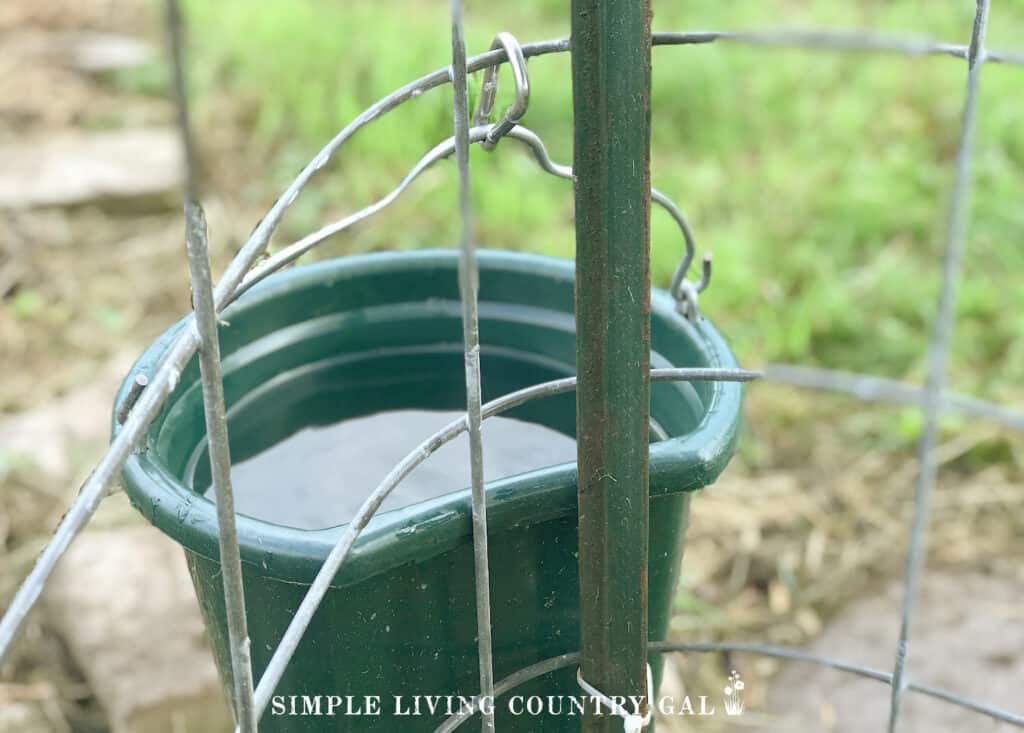
First Aid Care
Just like any other pet, goats can get sick or injured. As a goat owner, it is your responsibility to provide them with proper first aid care. Be sure to have a basic first aid kit on hand that includes items such as bandages, antiseptic ointment, and a thermometer.
It is also important to have a good relationship with a local veterinarian specializing in livestock. They can guide you on properly caring for your goats and diagnose any health issues that may arise.
Many times your vet will advise you by phone so you do not need to bring your goats into the office or ask for a farm visit which can be expensive.
Minerals and Supplements
There are also a variety of minerals and supplements that can help keep your goats healthy and happy, such as selenium and probiotics. Know what your area is deficient in before incorporating a routine.
You can call your local vet, your county extension office, the 4H group in your area, or other goat farmers. I learned more from our neighbor, who also raised goats, than from any book I ever read. Local care varies, so make friends with the people near to you and ask questions.
Basic Care
As a beginner goat owner, educating yourself on the basics of goat care is important. This can include things like proper grooming, clipping, hoof trimming, and parasite control. If you can set up a routine for their care, you will raise a healthy and happy goat herd. I learned early on that is easier to encourage health in goats than it is to treat issues such as a worm overload or illness.
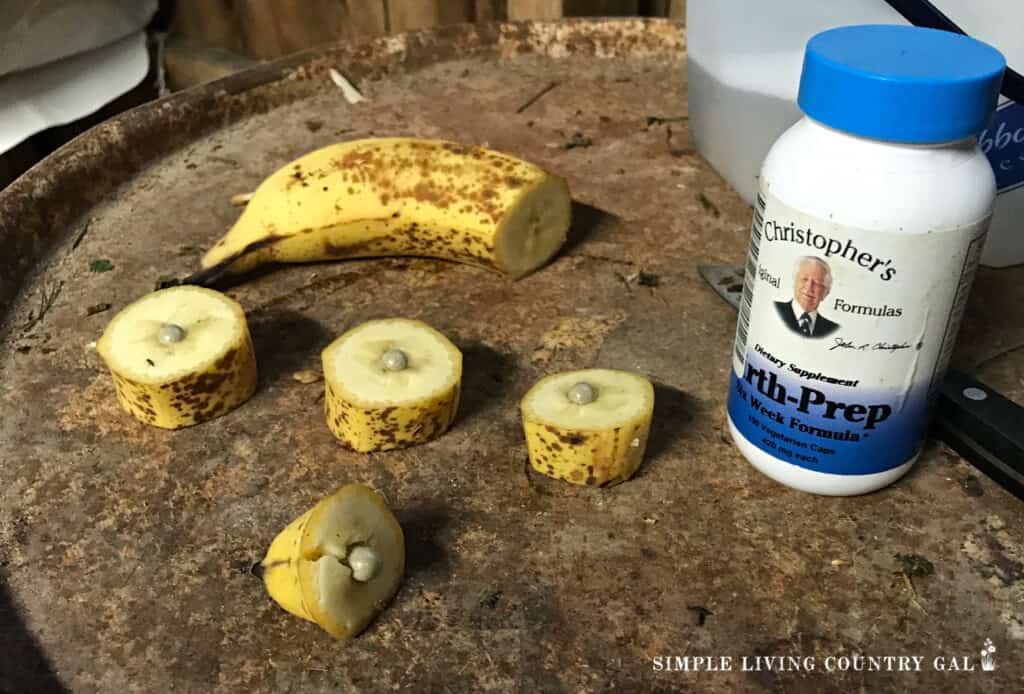
Make a list of routine care and block off time each week on your calendar. Use this time to check each goat’s body condition to better help you catch things before they get out of hand. Touch your goats and pet them. Many times their fur can mask weight changes which can be your only clue that something is off.
Taking care of goats requires work and dedication, however, with the right resources and knowledge, it can also be a rewarding and enjoyable experience.
By following these tips and guidelines, you will be well on your way to becoming a successful goat owner. Remember always to prioritize the health and well-being of your goats and create a positive experience from day one.
More Goat Care Resources:
- How to Train Goats on Electric Fencing
- Creating a Free Playground for Your Goats
- 8 Super Simple Steps Delicious Tasting Goat Milk

I’d like to get some goat, thanks much for your help.